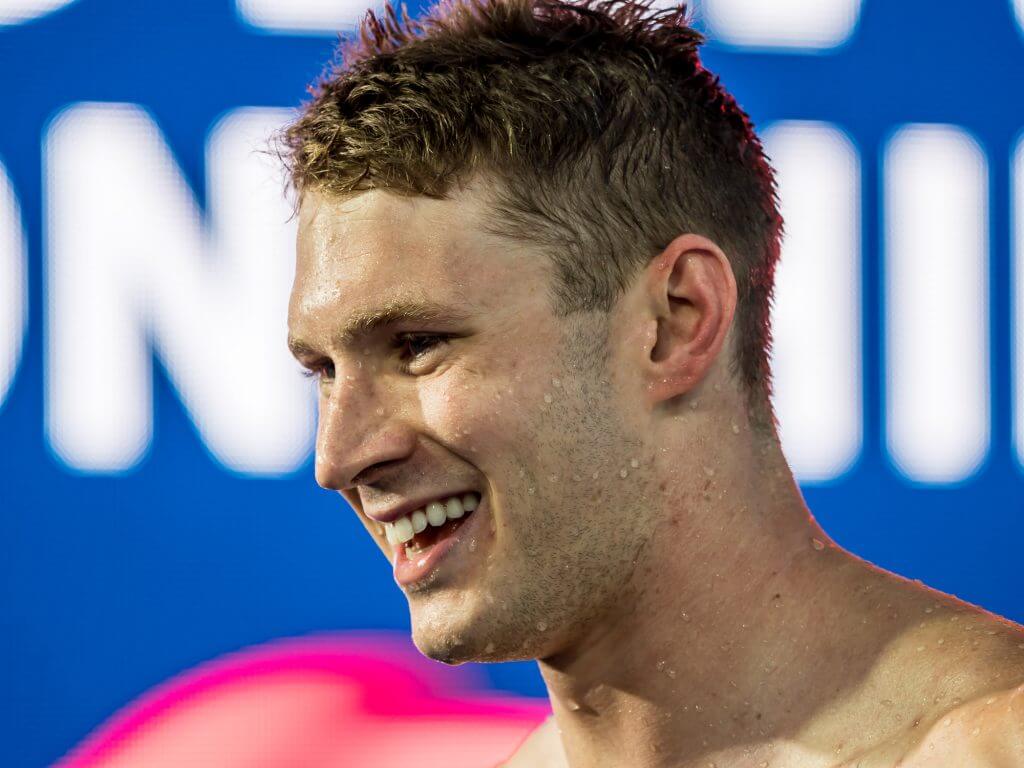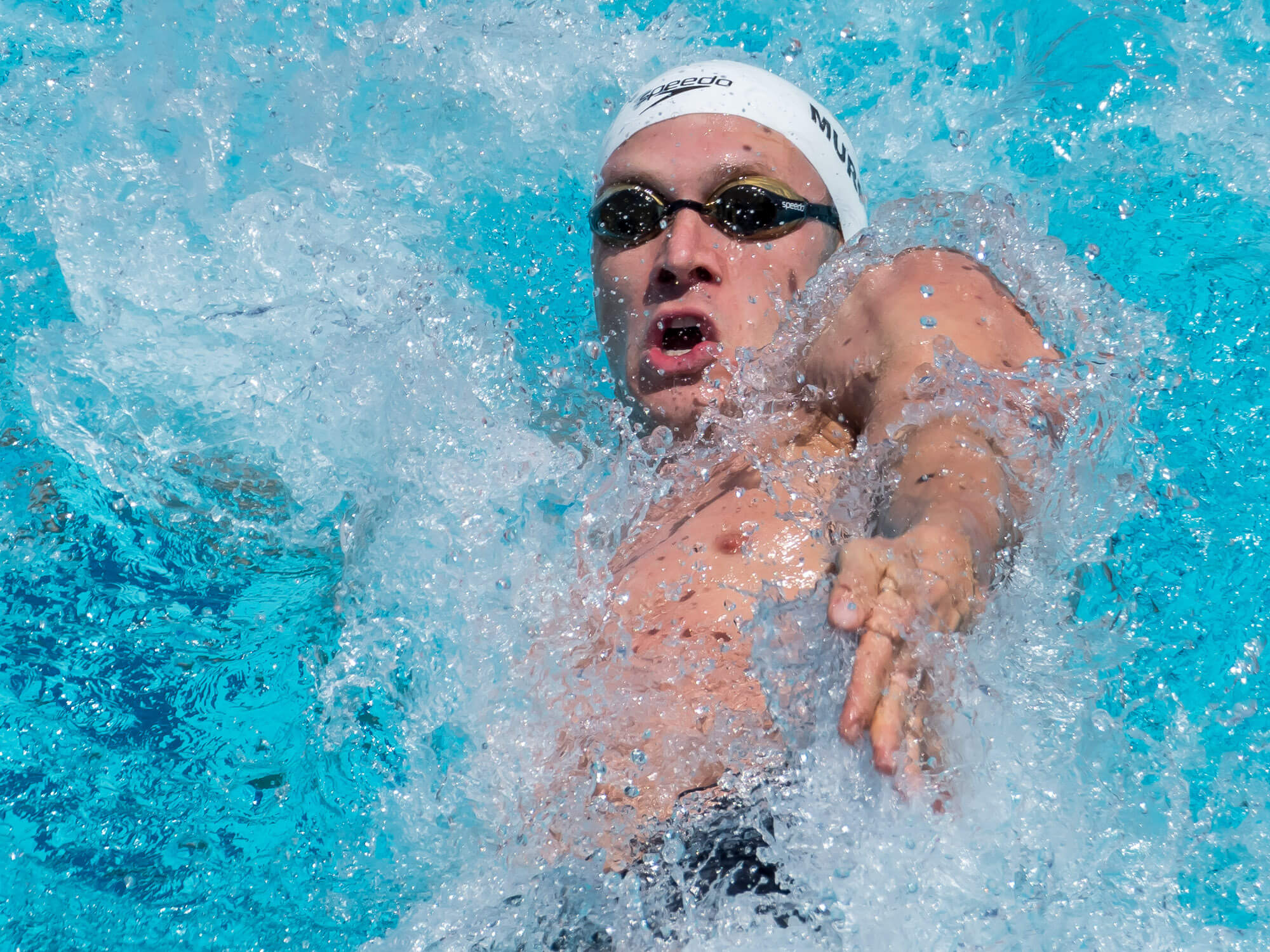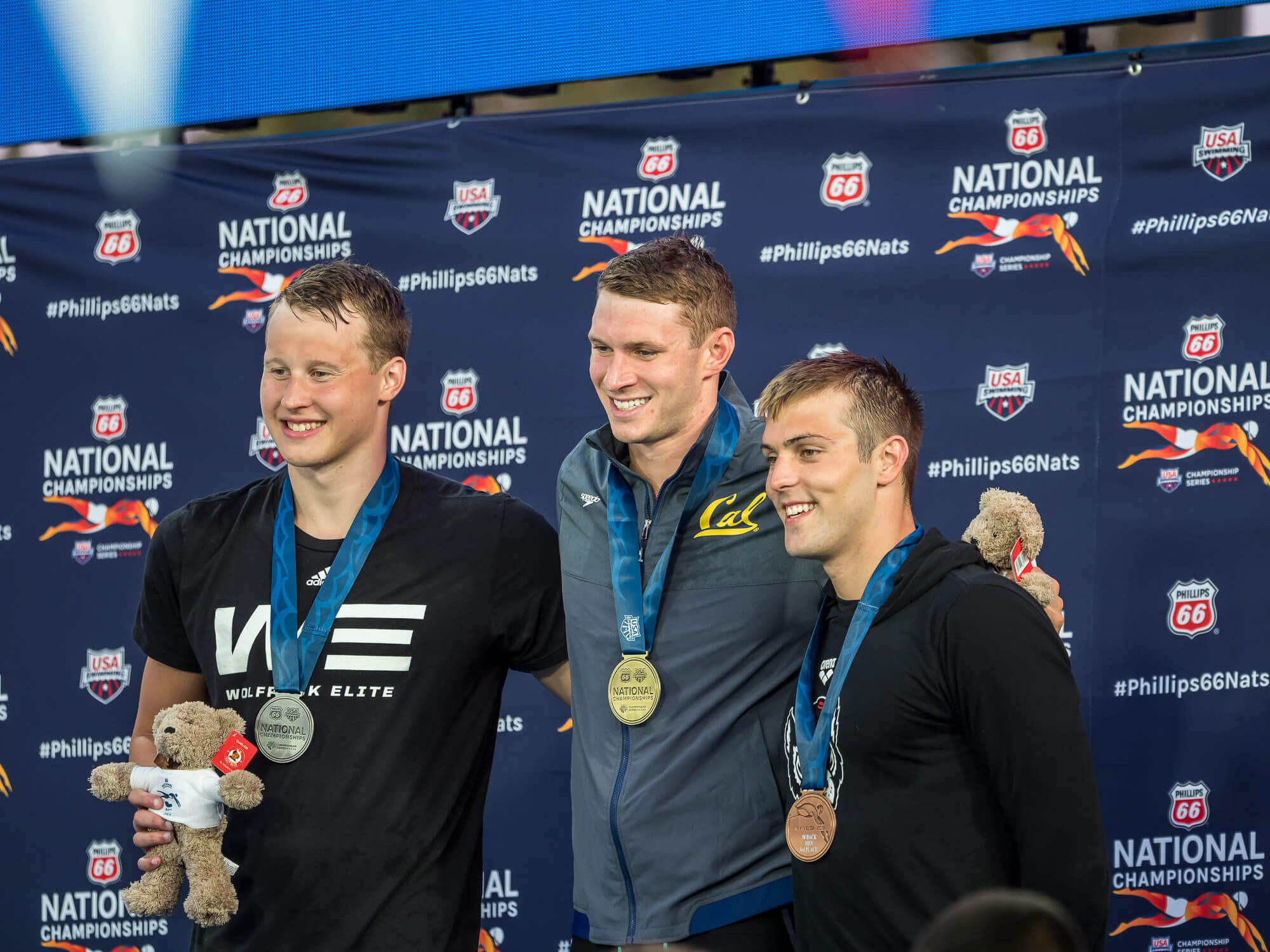Painful Memories of Budapest Reinvigorate Ryan Murphy

By David Rieder.
On the night Ryan Murphy won his first Olympic gold medal in the 100 back, posting the second-fastest time ever at 51.97 in the process, his American teammate and bronze medalist David Plummer said that he knew all along what the then-21-year-old was capable of.
“Absolutely. I think everyone’s known that about Murph for a couple years now,” Plummer said. “He’s going to be one of the best of all time and already is, so just to be a little part of his journey is a very cool thing.”
Later during that week back in 2016, Murphy ended up adding a gold medal in the 200 back, making him one of just two men to finish those Games with multiple individual gold medals in swimming—the other being Michael Phelps. Murphy finished out the meet by leading off the American 4×100 medley relay to another gold, and he broke Aaron Peirsol’s 100 back world record with a 51.85.

Photo Courtesy: Peter H. Bick
Rio felt like the beginning. But a year later, he couldn’t back up that performance at the World Championships in Budapest. In the 100 back, he finished behind Xu Jiayu and Matt Grevers, and he could not catch Russian Evgeny Rylov in the 200 back. Grevers claimed the spot leading off the American medley relay in finals.
Murphy called the performance “a slap in the face.” Even if his motivation waned in the post-Olympic year, having achieved his lifetime goals of a gold medal and a world record, what happened didn’t sit well with him when he returned to training. He remembered all the moments in Budapest that ticked him off.
“I remember going into the media zone and having David there,” Murphy said, looking straight at me. “He feels awkward asking me questions. I remember the look on his face. So that’s something that sticks with me.
“And then I can think back to the finish of the 100 back, and I look up and I see third by my name. I remember the exact look on Xi Jiayu’s face when I looked at him.”
Sometimes, finding the right questions to pose to an unhappy swimmer can be difficult, and that was the situation in Budapest. The morning after the 100 back final, Murphy led off the mixed 4×100 medley relay in 52.34, quicker than both his time from the final when he won bronze (52.59) and Xu’s gold medal-winning time (52.44).
Was that a frustration swim? “Yes,” Murphy replied. Seconds of silence followed.
===
At Nationals this year, there has been no awkwardness. Only dominance—the old Ryan Murphy that everyone saw on the sport’s biggest stage in Brazil. Check out his backstroke times this week: In the 200 back, he swam a 1:54.15, the second-fastest time in the world behind Rylov (1:53.71). That’s just two tenths off his Olympic Trials time (1:53.95) from right before Rio and faster than his finals time from Worlds last year (1:54.21).
Later that same night, Murphy decided to swim the 50 back. “It was like, ‘Why not?’” he said. “It’s not going to take too much out of me to do a 50 back.”

Justin Ress, Murphy & Ryan Held (L to R) after the 50 back — Photo Courtesy: Peter H. Bick
He ended up winning in 24.24, breaking a nine-year-old suit-aided American record and surpassing the 24.35 that Camille Lacourt swam to win last year’s World title.
But that was just a precursor for his 100 back. Murphy figured that a Friday night sprint before the 100 would keep his body in his normal weekly training rhythm—“Friday nights, we go really fast, short stuff, and Saturday morning we kind of blow it out of the water.”
In that 100-meter final, Murphy went out in 25.15, just two-hundredths off his own world record pace, and he held off Grevers to finish in 52.51, beating out Rylov’s 52.67 for the top time in the world this year.
And after this, he likely still has more room for improvement at the Pan Pacific Championships next month, to be held in an indoor facility after another week-plus of taper.
What’s different this year compared to 2017? The way Murphy sees it, it’s pretty simple.
“The body of work this year has been really consistent, Murphy said. “I couldn’t say that about last year. I swim well when I’m consistent in practice—that’s what helps me get the flow for my stroke.”
Still, none of this has been any validation for Murphy, that his training is working. He said before the meet began that if the work he’d been putting in during practice didn’t show up in Irvine, it would later on. If he hadn’t set a record or come close to the world’s top times, he would have been fine, so long as he made the Pan Pacs team.
“I don’t really need a certain swim to prove to myself that I’m good. At this point, I feel like the body of work is really what I look at. I know what I’ve done throughout the year, and I know where I’m at,” he said. “The title of best backstroker in the world, I don’t think that’s really something we place too much stake in.”
But that title that Murphy disdains was one he earned in 2016, when he joined an exclusive club of men who had swept both backstroke gold medals at an Olympics. The others: Roland Matthes (1968 and 1972), John Naber (1976), Rick Carey (1984), Lenny Krayzelburg (2000) and Peirsol (2004).
Only one of those men, Matthes, has pulled off the double more than once. Peirsol came close to a repeat double, only to fall short in a battle against Ryan Lochte in the 200 back in 2008. Murphy has the talent and moxie to pull it off—the same traits that Plummer saw long before Murphy became an Olympic gold medalist.
Dave Durden, Murphy’s coach at Cal, said before the 2017 World Championships that he had no concerns about Murphy. He was fine with his backstroke ace taking it slow building back up in the post-Olympic year, even if didn’t all work out in Budapest. That’s because Durden had an eye for the bigger picture.
And now, halfway between his masterful effort in Rio and his next chance at Olympic glory, Ryan Murphy is right on track.



